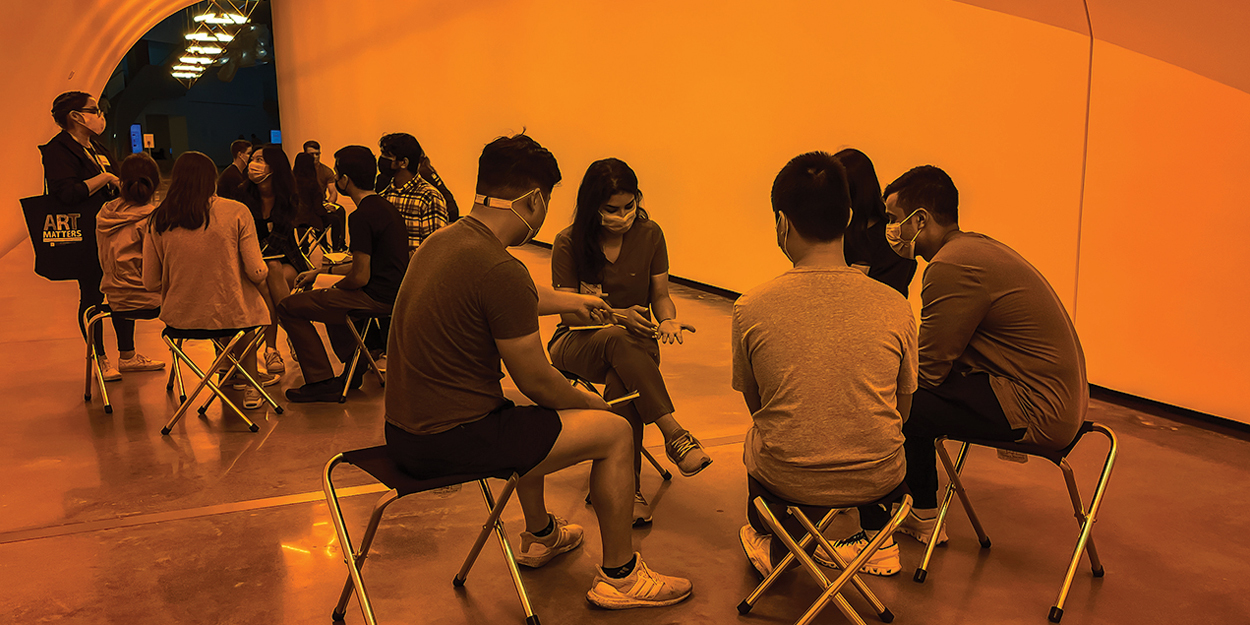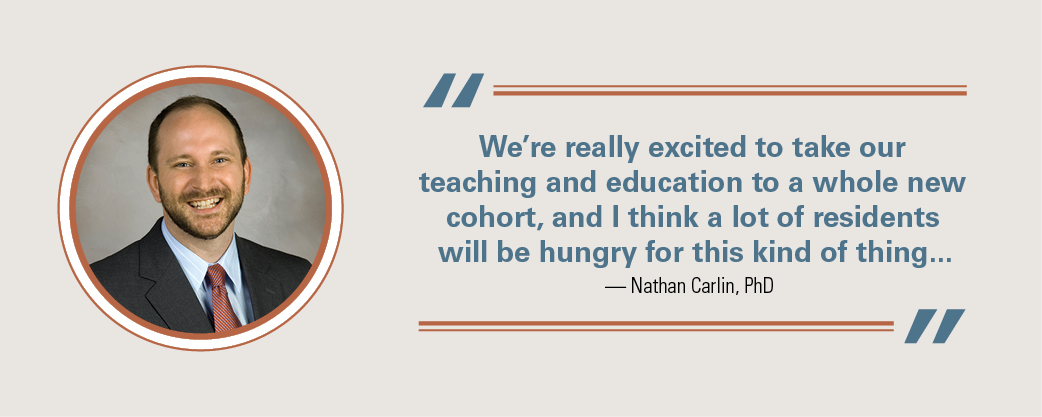Since its founding in 2004, the John P. McGovern MD, Center for Humanities and Ethics has been tasked with examining the moral, spiritual, and cultural aspects of biomedical science and the health professions.
For nearly two decades under the leadership of founding director Thomas Cole, PhD, the McGovern Center for Humanities and Ethics has given students an outlet to engage their own humanity and equip themselves with tools for personal development in order to address the dehumanization of healthcare.
While shaping the center into what it is today, Cole ensured that the McGovern Center had both a solid financial and institutional foundation. He helped to demonstrate the values of the McGovern Center and its mission and reaffirmed its vital role in the Medical School curriculum.
On Nov. 1, 2021, the McGovern Center experienced its first change in leadership, when Cole handed the reins over to Nathan Carlin, PhD, Samuel E. Karff DHL Chair and a former mentee of Cole.

“I want to give back to the McGovern Center and McGovern Medical School,” Carlin said upon taking over as director. “Our institution has been so good to me. I have wonderful colleagues, and I want to help our faculty and staff advance in their own careers as I have in mine.”
After receiving his master of divinity at Princeton Theological Seminary, Carlin moved to Houston for a doctorate of philosophy degree at Rice University. While at Rice, he began working for and training under Cole before becoming a full-time faculty member in 2009.
“While completing my graduate training at Rice, I worked as a research assistant for Dr. Cole,” Carlin said. “It was never my intention or goal to end up in this field, or to even end up in a medical school, but as I started working with Dr. Cole, it just seemed like there was just so much more opportunity in this field. It was newer, it was growing, and people really appreciated it.”
Carlin said that he enjoys what the McGovern Center has to offer, working with medical students to guide them into the best physicians and scientists they can be. The McGovern Center not only teaches medical students ethics and how to behave and think like a physician but also how to care for themselves to prevent burnout and to find meaning in their work.
“All those kinds of things are what faculty at the McGovern Center talk about with students, residents, and attending physicians on a daily basis,” Carlin said.
Carlin is deeply grateful to Cole for the work that he accomplished as director. “For my new role with the McGovern Center, I feel like I brought the right combination of continuity and change,” Carlin said. “Since I was mentored by Dr. Cole, I have this specific vision of medical humanities, and the McGovern Center and what we’re doing and preserving all that. Dr. Cole cultivated the McGovern Center, and now my role is to build the house that he laid the foundation for.”
All of the programs offered by the McGovern Center will continue under Carlin’s direction, including popular productions of the Arts & Resilience Program and various other performances and electives offered year-round.
Additionally, Carlin hopes to reconnect with alumni of the McGovern Center’s Medical Humanities Scholarly Concentration, the oldest at McGovern Medical School in terms of elective programming and generally one of the largest offered on campus. Carlin directed that program for nearly a decade before recently handing it over to Keisha Ray, PhD.
“That program has produced more than 200 alumni over the last 13 years, and many of them are done with residency now,” Carlin said. “We would like to have them back in a variety of ways.”

Carlin plans to bring new programs to the McGovern Center for Humanities and Ethics’ already impressive repertoire, while ensuring that the center continues its successful programming.
“We’ve been so engaged with the medical students for all these years, but we’ve had limited engagement with the residents,” Carlin said. “We have a new humanities and arts program that we’re going to offer for residents.”
Developed by Anson Koshy, MD, associate professor, the new resident program will be a one-year certificate that allows residents to immerse themselves in everything the McGovern Center has to offer.
“We’re really excited to take our teaching and education to a whole new cohort, and I think a lot of residents will be hungry for this kind of thing, both if they were at our school as medical students and did our program, or if they’re coming from another medical school where they didn’t have access to anything like this,” Carlin said.
Additionally, the McGovern Center will expand its reach even further, beyond the campus of McGovern Medical School and into the Houston community with a new writing program for health professionals. The program will help doctors, nurses, and dentists in the Houston area who are seeking an avenue to write memoirs or creative nonfiction and prepare them for publication.
“We’d like to help these folks take steps in becoming writers,” Carlin said. “We’ve never done anything like that before, and I think it represents a new initiative in terms of community engagement. Most of our efforts have been directed internally, and this will be a major effort in engaging the Houston community in a novel way.”
With the combination of old and new, Carlin said an important aspect for the McGovern Center is to ensure students receive the same dimensions of education the center has always offered. These include helping students understand context —whether historical or social — helping students to understand the experiences of others, and to learn to listen to their own experience.
“There are very few venues where medical students have the time and space to self-reflect,” Carlin said. “They’re so busy with all of their training and exams, it’s very easy to get lost or disconnected from why they are here and why they are doing what they’re doing. The humanities help us understand why we’re doing what we’re doing.”